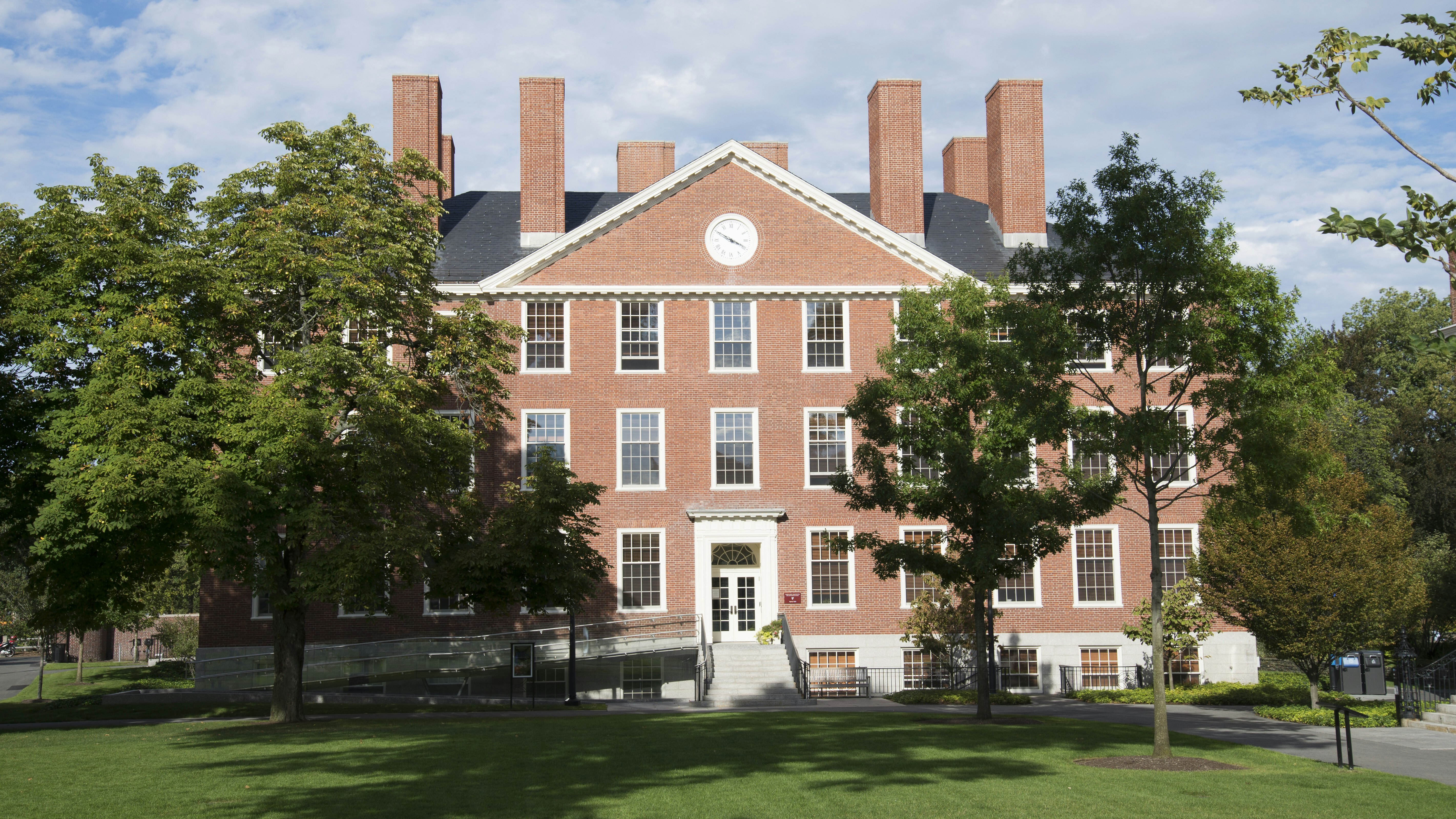Harvard Radcliffe Institute Announces 2021–2022 Fellows

In-person class “will reckon with this moment and its meaning.”
A changed world awaits the 2021–2022 fellows at Harvard Radcliffe Institute. The message of their projects—creative, far-reaching, and bold—is a shared ambition to make it better.
The artists, scientists, scholars, and practitioners who make up the 2021–2022 class, announced Wednesday, include a Nobel Prize–winning Harvard professor set to examine potential levers for influencing corporate responsibility; a mathematician focused on climate change; a fiction writer planning a novel grounded in the real-life experiences of Black Americans; and an economist hoping to identify openings for bolstering US antitrust enforcement.
“The 2021–2022 fellowship cohort is characterized by intellectual reach, excellence in scholarship, and creativity,” said Radcliffe Dean Tomiko Brown-Nagin RI ’17, who is also the Daniel P. S. Paul Professor of Constitutional Law at Harvard Law School and a professor of history in the Harvard Faculty of Arts and Sciences. “Many of them are also focused on the most urgent problems of the day.
“In the wake of an unprecedented—and profoundly difficult—14 months, the challenges facing our society are daunting. Some of these challenges are new, others are merely new to the spotlight—deep and longstanding issues that have been exacerbated by the pandemic and its far-reaching consequences. Our newest class of fellows will reckon with this moment and its meaning, and they will push the limits of knowledge and practice across the sciences, social sciences, arts, and humanities. We cannot wait to welcome them.”
The acceptance rate for the class, which represents nine countries, was 2.4 percent, from 1,383 applications. A sampling of the fellows and their projects promises an exciting year at Radcliffe.
W. Ralph Eubanks (Carl and Lily Pforzheimer Foundation Fellow), an author and journalist, will draw from personal history, archival research, blues culture, and face-to-face interviews to draft a book revealing the American story at the heart of the Mississippi Delta.
Amy Farrell (Mary Beth and Chris Gordon Fellow), a professor of American studies and women’s, gender, and sexuality studies at Dickinson College, will continue work on a book exploring the history of the Girl Scouts in the United States, including the organization’s treatment of race and civil rights issues.
Ariela Gross (Joy Foundation Fellow), a historian at the University of Southern California, plans a narrative that examines how slavery reverberates through contemporary debates in law, culture, and politics.
Oliver Hart (Jeffrey S. and Margaret Mais Padnos Fellow), the Lewis P. and Linda L. Geyser University Professor at Harvard University and corecipient of the 2016 Nobel Prize in economics, will continue his study of the relative effectiveness of divestment, boycotts, and other methods for influencing corporate behavior.
The novelist Ladee Hubbard will use fiction to connect the 1980s War on Drugs to the larger history of African Americans’ experiences in drug trials and medical experiments.
Joan Najita (Edward, Frances, and Shirley B. Daniels Fellow), an astronomer at the National Science Foundation’s NOIRLab, will investigate the origins and scope of diversity among planetary systems.
Steven Phelps, a professor of integrative biology at the University of Texas, will research how and why species form attachments as part of a book project focused on the biology of intimacy.
Annalisa Quaini (William and Flora Hewlett Foundation Fellow), a mathematician at the University of Houston, will explore methods for simulating cloud and cloud-aerosol interactions in pursuit of climate change insights.
Nancy Rose (Matina S. Horner Distinguished Visiting Professor), an economist at the Massachusetts Institute of Technology, will analyze the role of economics in the evolution of US antitrust measures and evaluate options for strengthening antitrust enforcement.
The fellowship’s executive director, Claudia Rizzini, will greet the 2021–2022 fellows confident in their individual potential and excited to watch their shared intellectual adventure unfold.
“Following the success of the virtual fellowship this year, I am thrilled to welcome the fellows in person in the fall,” she said. “I am eager to see what this extraordinary group will achieve and remain sure that, once again, the camaraderie and collaboration among the fellows will enrich their projects.”







